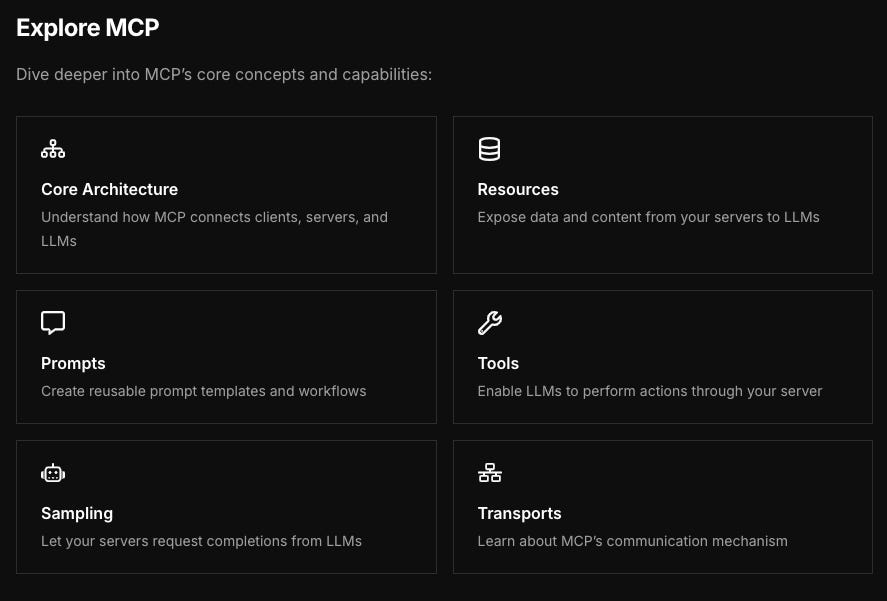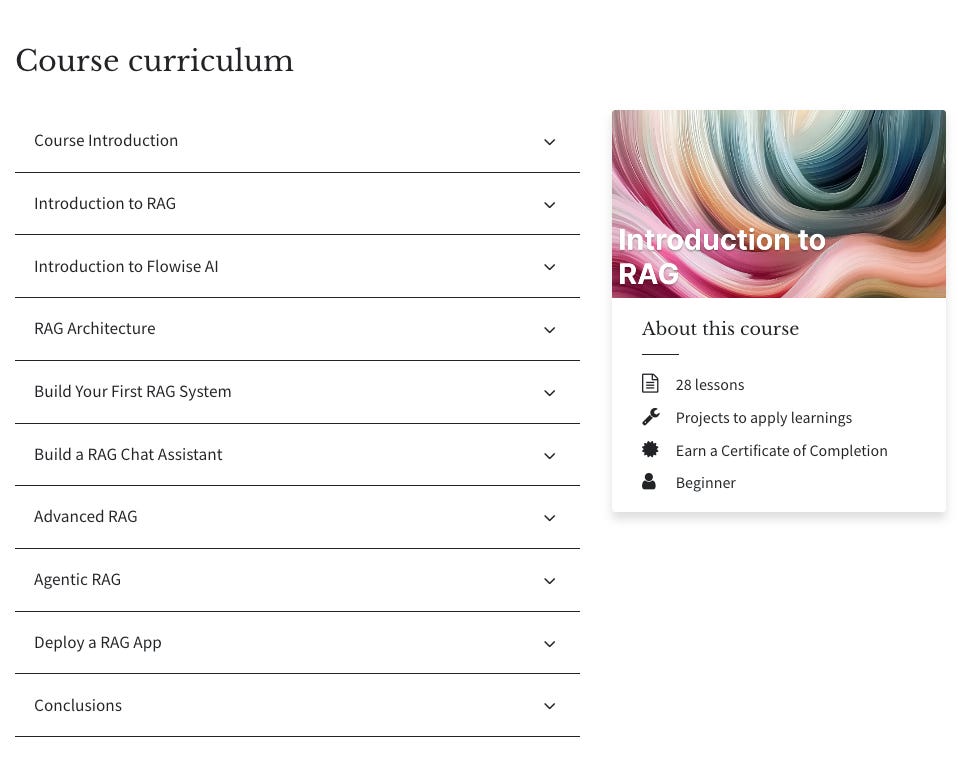🐙Top AI Dev News: Cursor Agent, aisuite, LLM Structured Generation, AgentAuth
Cursor Agent, aisuite, LLM Structured Generation, AgentAuth,...
Welcome to our new series covering all the top and most important AI developer news. As some of you already know, we have a series covering Top AI Papers of the Week and one covering AI Agents. We are testing this new series to help developers make sense of the top and trending AI developer news.
Here is what’s new for AI Devs:
Anthropic announces a unified protocol for integrating LLMs with different data sources.
Voyage AI releases voyage-3 and voyage-3-lite embedding models that outperform OpenAI's text-embedding-3-large.
.txt recent findings on the performance boost of structured generation.
OpenAI releases two papers highlighting their red teaming advances.
AgentAuth: a new authentication platform designed for AI agents.
Cursor introduces an agent feature to improve code automation.
… and much more.
Top AI Dev News
Anthropic Introduces MCP
Anthropic introduces the Model Context Protocol (MCP), an open standard that enables AI assistants to connect with various data sources like content repositories, business tools, and development environments. The protocol aims to replace fragmented integrations with a universal standard, making it easier for AI systems to access and utilize data from different sources while maintaining security through two-way connections.
The launch includes three key components:
the MCP specification and SDKs,
local MCP server support in Claude Desktop apps,
and an open-source repository of pre-built servers for platforms like Google Drive, Slack, and GitHub.
Early adopters including Block, Apollo, and development tools companies like Zed, Replit, and Codekum are already integrating MCP into their systems, with Claude 3.5 Sonnet offering support for quick MCP server implementations. Developers can start building with MCP through the Claude Desktop app, with expanded production server capabilities coming soon for Claude for Work customers.
Voyage-3 Embedding Models
Voyage AI releases voyage-3 and voyage-3-lite embedding models that outperform OpenAI's text-embedding-3-large by 7.55% and 3.82% respectively while offering smaller embedding dimensions (1024), longer context windows (32K tokens), and significantly lower costs (2.2x less than OpenAI v3 large, at $0.06 per 1M tokens).
voyage-3 is particularly effective for domains like code, law, and finance. It also shows strong performance on multilingual retrieval.
From the Editor
We’ve launched a new course Introduction to Retrieval Augmented Generation (RAG). It covers fundamentals, design patterns, and building advanced RAG systems ranging from chat assistants to Agentic RAG.
Use code BLACKFRIDAY for a 35% discount. Offer ends in 3 days!
Students and teams can reach out to training@dair.ai for special discounts.
Structured Generation Improves Performance
A new article, from .txt, challenges the findings of "Let Me Speak Freely," a research paper that claimed structured generation in LLMs led to worse performance compared to unstructured outputs.
The author demonstrates that the original paper's conclusions were flawed due to poor prompting practices and misunderstandings about structured generation. Through re-implementation of the original experiments, they found structured generation actually improved performance across all tested tasks.
The article focuses particularly on the "Last Letter" task, where they achieved 77% accuracy with structured JSON generation compared to 68% with natural language outputs. The findings emphasize the importance of proper prompt engineering and demonstrate that structured generation, when implemented correctly, consistently outperforms unstructured approaches.
Top Trending
AI Tools
Cursor Agent
Cursor recently released an early version of an agent available in Composer that can pick its own context and use the terminal.
Luma AI’s Dream Machine
Luma AI announces its all-new Dream Machine, which now allows users to create high-quality and photorealistic images and videos. Features include better understanding of prompt intent, referencing and remixing images, creating consistent characters, brainstorming, and more.
aisuite
Andrew Ng released a new open-source Python package called aisuite. According to Andrew, aisuite should make it easy for developers to use LLMs from multiple providers. aisuite lets you pick a "provider:model" just by changing one string (e.g., openai:gpt-4o, anthropic:claude-3-5-sonnet-20241022, ollama:llama3.1:8b, etc.).
AgentAuth
Composio launches AgentAuth, a new authentication platform designed for AI agents, enabling secure connections to 250+ external applications through OAuth2, API keys, and JWT, while supporting major frameworks like Langchain and CrewAI.
NotebookLM Updates
NotebookLM recently released new features, including the ability to convert notes to sources and automatic notebook titles.
AI Papers
Advancing Red Teaming
OpenAI releases two papers highlighting their red teaming advances: a white paper detailing their external expert testing approach, and a research study introducing new automated methods for testing AI models using more capable AI systems to improve diversity and effectiveness of safety evaluations.
Blog | External Red Teaming Paper | Automated Red Teaming
Fugatto
NVIDIA introduces Fugatto, a new generative AI sound model that can create and transform any combination of music, voices, and sounds using text and audio inputs, trained on 2.5B parameters and capable of novel audio generation like making trumpets bark or saxophones meow.
Does Prompt Formatting Impact LLM Performance?
A new study reveals that prompt formatting (plain text, Markdown, JSON, YAML) can impact LLM performance by up to 40% in GPT-3.5-turbo, while larger models like GPT-4 show more format resilience, with different model families exhibiting distinct format preferences.
LLM-as-a-Judge Survey
This new paper provides a comprehensive overview of LLM-as-a-Judge and discusses strategies, methods for evaluating them, applications, and major challenges.








Your approach to split up your writing in different focused newsletters is inspiring. Thanks, Elvis!
Thanks for this helpful roundup. Although I don't have a computer science and engineering background, I appreciate what you write and how you try to make it clear and direct, reporting the crucial aspects.